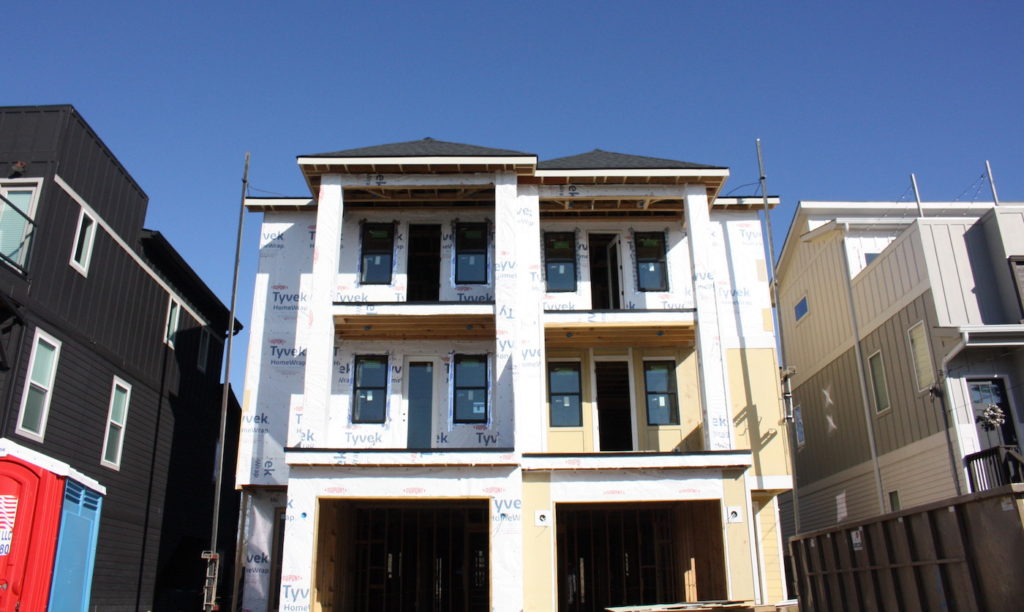
Buildings are the fourth-largest source of climate pollution in the U.S.
Many cities are tackling emissions with better energy codes, but a new bill in Tennessee would effectively block this policy tool — preventing cities from requiring developers to construct healthier and more efficient homes and buildings.
“We’re setting a maximum standard,” Rep. Jason Zachary, R-Knoxville, the bill sponsor, said during a recent committee hearing. “Versus the government mandating and forcing a significantly higher energy code, it gives the builders flexibility.”
Building energy codes set minimum efficiency requirements for new and renovated buildings. The goal is to use less electricity, use less natural gas and reduce lifetime energy costs for people. Tennessee has the second-highest monthly electricity consumption in the nation.
 Courtesy Environmental Protection Agency
Courtesy Environmental Protection Agency Buildings represent the fourth-largest source of climate pollution in the U.S. Natural gas used for heating and cooking is the main source of direct emissions.
In the U.S., there are two main codes for commercial and residential building energy codes: the International Energy Conservation Code, which are codes updated every three years by the International Code Council; and the American Society of Heating, Refrigerating and Air-Conditioning Engineers Standard 90.1.
The proposed bill sets maximum energy standards with the 2018 International Code Council codes. These are the codes that are currently in place in Nashville.
‘Some builders just want those million-dollar paydays’
Cities wishing to enact stricter codes would have to get through the state legislature.
“A new code, or a revision or amendment that is more stringent than the above-referenced code, becomes effective only upon approval by the general assembly by legislative enactment,” the bill states.
Memphis has already set codes more stringent than the proposed maximum. The city, which has historically maintained the highest energy burden in the nation, adopted the 2021 International Code Council energy codes.
During a recent committee hearing, Rep. G.A. Hardaway, D-Memphis, said he rejected the legislation because it prioritizes developers over people.
“Some builders just want those million-dollar paydays, but it’s up to local governments to actually put public policy in place to take care of the local people,” Hardaway said.
Zachary, the bill sponsor, argued that better energy codes would make homes less affordable, but most studies show the opposite. A Department of Energy report found that Tennessee residents could save $60 million annually by 2030 with updated energy codes, and the commercial building sector could save $90 million annually.
A recent study in Nature found that 16% of American households experience energy poverty, which disproportionately impacts Black, Hispanic and Native American communities.
The natural gas industry has been fighting stronger energy codes
Stricter building codes have been successfully protested by fossil fuel interests and developers in recent years — like last year, when companies were given even greater control over the code-writing process.
In 2020, the American Gas Association and the American Public Gas Association appealed a code that would require outlets to be installed near gas or propane alliances to allow for future transitions electric stoves and water heaters. Housing developer groups also fought this proposal, along with a provision that would require wiring for future electric vehicle charges, from the International Code Council.
Natural gas used for heating and gas stoves represents nearly 80% of the direct fossil fuel carbon dioxide emissions from the residential and commercial sectors, according to the Environmental Protection Agency. Natural gas in homes is also a significant factor in air pollution.
If the bill passes, future homes and buildings in Tennessee will be dirtier and less efficient than those in other parts of the country. The International Code Council will publish new energy codes in 2024.
A report from Nashville’s sustainability committee recommended that the city’s energy codes be updated every three until all new buildings are net zero.

